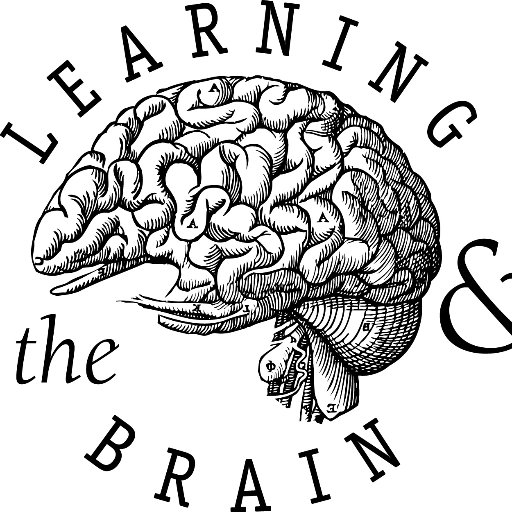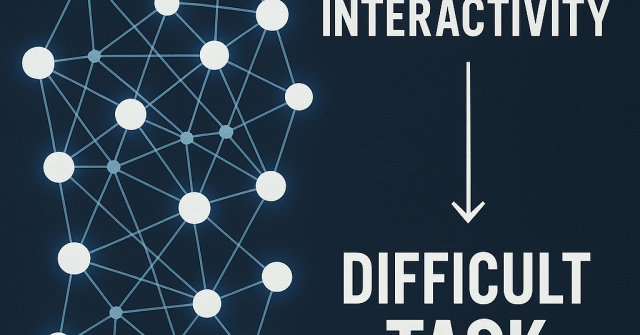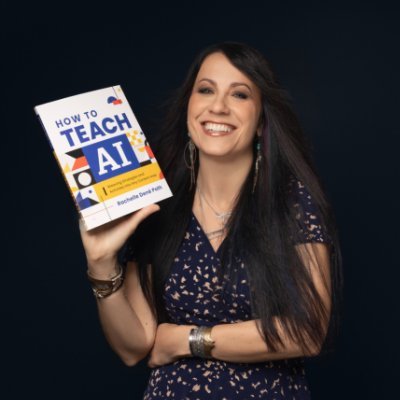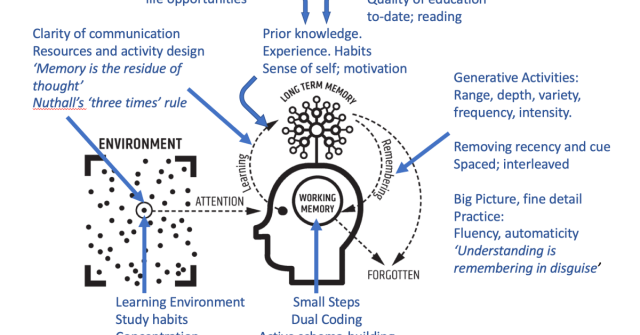
Learning & the Brain
@learningandtheb
Followers
14K
Following
4K
Media
3K
Statuses
7K
Learning & the Brain® connects educators to the latest in the science of learning.
New Canaan, CT
Joined February 2011
When so many research studies arrive at different conclusions, how do we decide on the best answer? In this short video, @jtalmarode explains #meta_analysis. https://t.co/85DJTm91Cj
0
0
0
How much precise technical language do teachers need to know? After all: we could call "precise technical language" "jargon." @MrZachG explores this question: https://t.co/lELLNUzF7A (Honestly, our blogger is kinda obsessed with this question as well: https://t.co/miDASZF5wB)
educationrickshaw.com
A possible barrier to the science of learning movement is that there are potentially a lot of research terms and definitions that need to be learned in order to communicate clearly with one another…
0
3
3
Tremendously honored to be speaking at the incredible @learningandtheb conference this February in San Francisco. Can't wait to meet the educators in attendance. https://t.co/cHKaKUg8jo
#Captivate
0
1
3
Looking forward to speaking at the Learning and the Brain Conference in February in San Francisco! Excited to join the other speakers & be part of a great learning opportunity! @learningandtheb Register here: https://t.co/vWelcztmDK
#education #edchat #learning @ISTEOfficial
1
1
1
We know that #retrieval_practice enhances learning. We know that #drawing does too. What happens when we COMBINE these strategies? Our blogger reviews a recent study, and finds...both disappointment and possibility. https://t.co/O4jKDi1LT2
0
2
1
It's bad news when staff make mistakes, but it's GREAT news when they feel comfortable talking about the mistakes we all make. @leaningshane offers wise thoughts: https://t.co/wGXdJB4RvM
0
2
2
If #AI can improving #gaming, and gaming can preserve mental function as we age, we've got a powerful combination! Check out this video with Dr. Adam Gazzaley: https://t.co/rHaoNdCPLq
0
1
2
WHOA! At least this one substantial #SEL program showed no benefit for participants. https://t.co/scYo2BGFFp We should pay close attention research that contradicts common beliefs...
0
0
0
Models help us think well. In this post, @teacherhead explains the model that he uses: where it came from, how it helps: https://t.co/dr5FYBhA7O
teacherhead.com
One of the most powerful ideas I’ve engaged with recently is using a diagram to visualise a shared model of the learning process; using it to get a feel for how learning works in general but …
0
8
9
How adults can help young people "co-evolve" with #AI and use these powerful tools to their benefit? @YongZhaoED offers wise thought here: https://t.co/kplWz7YAAY And at our San Francisco conference, "Teaching Generation AI-Z":
learningandthebrain.com
Learning & the Brain
0
0
0
"Schools aren’t just collections of classrooms. They’re ecosystems: a web of interdependent systems that all need to function in harmony." For this reason, @EnserMark reminds us, outside fixes rarely work-- because they focus on one part and not the whole. We need to think
0
3
5
Should weak #readers learn #science from videos? A recent study says YES. Our blogger says, "I'm not so sure." https://t.co/zm9jLtIf70
1
0
1
Don't get too excited yet: this research was done with MICE, focused on VERY basic kinds of memories, and would be SPECTACULARLY complicated to do with humans. That being said: WOW: https://t.co/hDlBtenaYP
actu.epfl.ch
EPFL scientists have found that changing the “packaging” of DNA in neurons can turn memories on or off in mice.
0
0
1
In the field of education, we care a lot...so we DISAGREE a lot. How do we best communicate with people who strongly disagree with us? @jayvanbavel offers wise thoughts in this video: https://t.co/AhcgTqQsGw
1
2
4
We often hesitate to admit that our intuition is wrong; we just don't like it when research contradicts our instincts. Congratulations to @eduleadership for publicly changing his mind about #reading instruction: https://t.co/a1ES5nhCWu
1
1
1
One of MANY reasons for teachers not to get wrapped up in neurobiological explanations of mental function: our understanding of the brain is SO LIMITED. Today's example: our understanding of #fear used to focus on the amygdala. But, wow! https://t.co/10P7fpo3CH
nature.com
Nature - Emotional experience evokes signalling in astrocytes, which form an ensemble that is reinforced by secondary astrocytic state changes resulting from repeated experience, leading to memory...
0
0
1
Prevalent myths about math instruction have hindered the application of evidence-based math practices in schools. We will examine several common misconceptions and contrast them with the latest research and the best available evidence. Topics will include timed tasks and tests,
learningandthebrain.com
Learning & the Brain
1
5
25
Should schools allow or encourage the use of #AI in the classroom? @daisychristo writes: your answer probably depends on your beliefs about the goal of education. https://t.co/R2CoxzRxnN Check out her "marathon" metaphor...
substack.nomoremarking.com
You aren't sending a message - you're running a marathon
0
2
5
We often base our teaching on education theories...but theories change over time. What should teachers do with that information? Our blogger has suggestions: https://t.co/R4feHOYxIM
0
0
0
Teachers get LOTS of advice about lesson planning...most of it bad advice. @MrZachG offers a better way: https://t.co/7i9k0s7v1K
educationrickshaw.com
The first truth about lesson planning is a paradox: In a perfect world, it wouldn’t even exist. Designing curriculum and instruction is its own science, and a difficult one at that. When well-desig…
0
10
44









